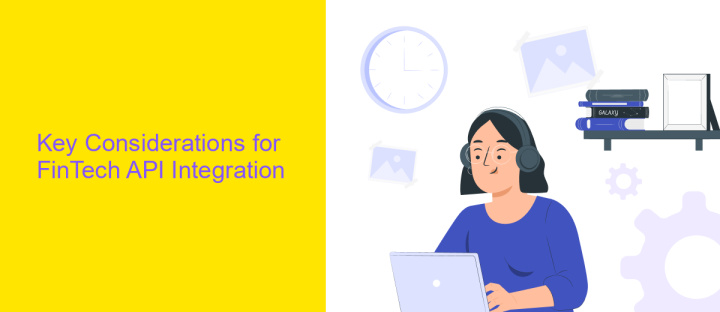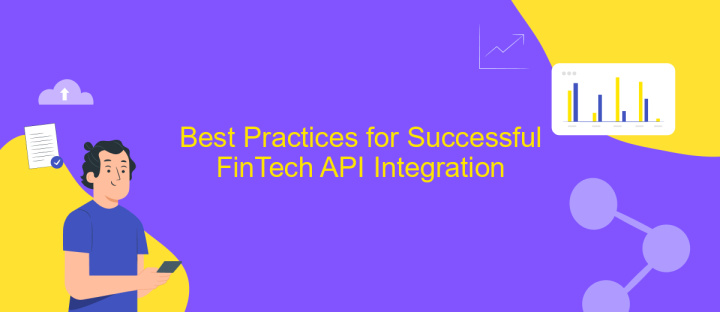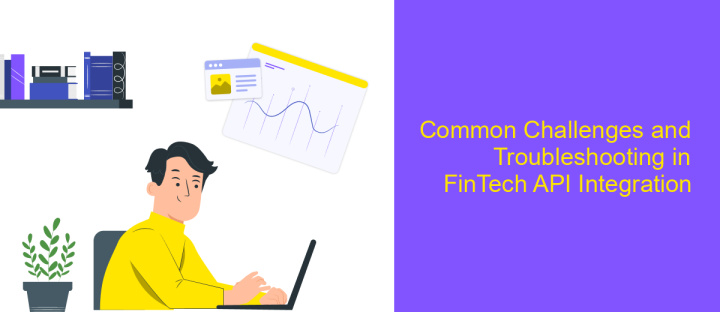FinTech API Integration
In today's rapidly evolving financial landscape, FinTech API integration stands as a pivotal force driving innovation and efficiency. By seamlessly connecting diverse financial services and platforms, APIs empower businesses to enhance customer experiences, streamline operations, and unlock new revenue streams. This article delves into the transformative impact of FinTech APIs, exploring their benefits, challenges, and the future potential they hold for the financial industry.
Understanding FinTech APIs and Their Benefits
FinTech APIs are revolutionizing the financial industry by providing seamless connectivity between different financial services and platforms. These Application Programming Interfaces (APIs) enable developers to integrate various financial functionalities into their applications, offering users a more comprehensive and efficient experience. By leveraging FinTech APIs, businesses can enhance their services, improve user engagement, and stay competitive in the ever-evolving financial landscape.
- Streamlined Transactions: FinTech APIs facilitate faster and more secure transactions by enabling direct communication between financial institutions and applications.
- Data Integration: APIs allow for the integration of real-time data, providing users with up-to-date financial information and insights.
- Enhanced Security: Many FinTech APIs come with built-in security features, ensuring safe and protected financial operations.
- Cost Efficiency: By utilizing APIs, companies can reduce development costs and time, focusing resources on innovation and customer experience.
In conclusion, understanding and utilizing FinTech APIs can significantly benefit businesses by improving operational efficiency and enhancing customer satisfaction. As the financial sector continues to embrace digital transformation, the role of FinTech APIs will only grow, offering new opportunities for innovation and growth.
Key Considerations for FinTech API Integration

When integrating FinTech APIs, security is paramount. Ensure that the APIs adhere to industry standards such as OAuth for authentication and encryption protocols like TLS to protect data in transit. It's crucial to conduct regular security audits and vulnerability assessments to safeguard sensitive financial data. Additionally, consider the scalability of the API to accommodate future growth and increased transaction volumes.
Another key consideration is the ease of integration. Opt for APIs that offer comprehensive documentation and support to facilitate a smooth integration process. Tools like ApiX-Drive can simplify this by providing a platform for seamless API connections without extensive coding. Furthermore, evaluate the API's reliability and uptime to ensure consistent service delivery. It's also important to assess the API's compatibility with existing systems to avoid costly and time-consuming modifications. By addressing these factors, businesses can ensure a successful and efficient FinTech API integration.
Best Practices for Successful FinTech API Integration

Integrating FinTech APIs can significantly enhance the functionality and user experience of financial applications. To ensure a seamless integration process, it is crucial to follow best practices that mitigate risks and maximize efficiency. Proper planning and execution are key to leveraging the full potential of FinTech APIs.
- Thorough Documentation Review: Before starting, meticulously review the API documentation to understand its capabilities, limitations, and data formats.
- Security Measures: Implement robust security protocols, including encryption and authentication, to protect sensitive financial data.
- Testing Environment: Utilize a sandbox environment for testing to identify and fix issues without affecting live operations.
- Scalability Considerations: Ensure the API integration can handle increased loads as your user base grows.
- Continuous Monitoring: Set up monitoring tools to track API performance and detect anomalies in real-time.
By adhering to these best practices, businesses can achieve a successful FinTech API integration that supports innovation and growth. It is essential to remain adaptive and responsive to the evolving landscape of financial technology to maintain a competitive edge. Continuous improvement and regular updates will ensure the longevity and effectiveness of the integration.
Common Challenges and Troubleshooting in FinTech API Integration

Integrating APIs within the FinTech sector presents unique challenges due to the complex nature of financial data and regulations. Companies often face difficulties ensuring seamless data flow between diverse systems, which can lead to inconsistencies and operational inefficiencies. Additionally, maintaining compliance with stringent financial regulations across different jurisdictions adds another layer of complexity.
Security is a paramount concern, as APIs can be vulnerable entry points for cyberattacks. Ensuring robust authentication and authorization mechanisms is crucial for protecting sensitive financial information. Moreover, the dynamic nature of APIs, with frequent updates and changes, requires constant monitoring and adaptation to avoid disruptions in service.
- Data compatibility issues between legacy systems and modern APIs.
- Ensuring compliance with evolving regulatory standards.
- Managing security risks and protecting sensitive data.
- Handling API versioning and updates without service interruption.
To mitigate these challenges, FinTech companies should invest in comprehensive API management platforms that offer monitoring, analytics, and security features. Collaborating with experienced API developers and staying informed about industry best practices can also enhance integration processes. By proactively addressing these issues, companies can achieve more reliable and efficient API integrations.
- Automate the work of an online store or landing
- Empower through integration
- Don't spend money on programmers and integrators
- Save time by automating routine tasks
Future Trends in FinTech API Integration
The future of FinTech API integration is poised for transformative growth, driven by advancements in artificial intelligence and machine learning. These technologies will enable more intelligent data analysis and decision-making processes, allowing financial institutions to offer personalized services tailored to individual user needs. Furthermore, the rise of open banking will continue to encourage collaboration between traditional banks and FinTech startups, fostering an ecosystem where APIs serve as vital connectors facilitating seamless data exchange and enhanced customer experiences.
As the demand for efficient integration solutions grows, platforms like ApiX-Drive are set to play a crucial role. By simplifying the integration process, ApiX-Drive allows businesses to connect multiple applications and services without extensive technical expertise, accelerating the adoption of API-driven solutions. Additionally, with increasing emphasis on security and compliance, future FinTech APIs will incorporate advanced encryption and authentication methods, ensuring data protection and regulatory adherence. These trends will collectively shape a more interconnected and secure financial landscape, driving innovation and accessibility in the FinTech sector.
FAQ
What is FinTech API integration?
How does FinTech API integration benefit businesses?
What are the common challenges in FinTech API integration?
How can businesses simplify the FinTech API integration process?
What factors should be considered when choosing a FinTech API provider?
Time is the most valuable resource for business today. Almost half of it is wasted on routine tasks. Your employees are constantly forced to perform monotonous tasks that are difficult to classify as important and specialized. You can leave everything as it is by hiring additional employees, or you can automate most of the business processes using the ApiX-Drive online connector to get rid of unnecessary time and money expenses once and for all. The choice is yours!


